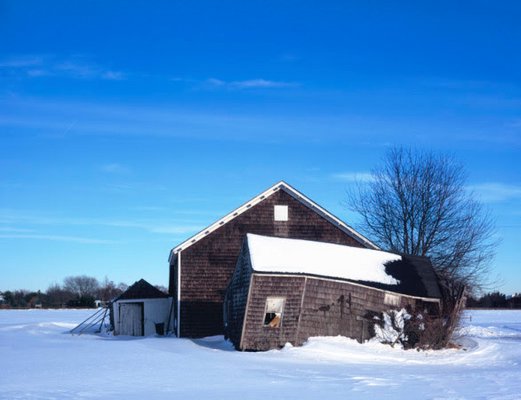
David L. Culp is staring into picture frames filled with vibrant and rolling, colorful and lively pieces of art that he has created. The medium he works in is not typical of most artists. The picture frames are the windows to his office, and the artwork behind them is his 2-acre layered garden in Downingtown, Pennsylvania, better known as Brandywine Cottage.
“For me it’s all about different perspectives, Mr. Culp said during a telephone interview last week while overlooking his masterpiece. “I also strongly feel it should look inevitable, not superimposed on the landscape.”
For the nurseryman and author, growing and cultivating a garden is more than just a “how to” of digging a hole and filling it with a plant. It is an existential experience of being connected with the land, being a part of nature and a way to connect to the larger world.
That is why his book, “The Layered Garden: Design Lessons for Year-Round Beauty from Brandywine Cottage,” has had so much success. It goes beyond the how-to and addresses the why. On Saturday, August 24, at 10 a.m., Mr. Culp will give a lecture, “The Layered Garden,” at Marders garden center and nursery in Bridgehampton. He will discuss the design, maintenance and seasonal nature of a layered garden, as well as the beauty of it.
Mr. Culp has been lecturing about gardens for more than 15 years. He is also currently a vice president at Sunny Border Nurseries in Connecticut and a former editor of Horticulture magazine.
His layered gardens at Brandywine Cottage are planted in a cyclical fashion. A natural rotation occurs so that as one breed is dying, another is blooming. It is a fluid process, a backyard microcosm of nature taking its course.
“It’s exactly what it is, the cycle of life ... and it is all to be appreciated, the plants and our own, it’s all to be celebrated,” Mr. Culp said. “How much pleasure can you ring out of one spot? I’m going to have wave after wave after wave, it’s about succession planting and about relationship.”
That is the point of the master gardener’s book and lectures, to take a small point and to make a larger statement about it. The garden is not just about pretty plants. According to Mr. Culp, it is about making a connection with nature, slowing down the high-speed, technologically saturated world, as well as having a quiet sanctuary in which to retreat.
The best part of a garden, for Mr. Culp, sometimes lies in its imperfections, he said. His is a chemical-free home to singing birds and flying insects. He believes it is more important to sustain life, than to have chemically perfected leaves and petals.
“I’m walking around my garden now and seeing butterflies. That’s something money can’t buy, that’s something you have to decide, and be able to live with a few chewed leaves,” he said. “It took a while to get this balance, but I’m responsible for creatures’ lives, I’m responsible for things other than just me in the garden.”
That responsibility goes beyond the pragmatic and spiritual nature of his garden and into the more technical aspects, he reported. Mr. Culp, known for his expertise on hellebores and galanthus, (commonly referred to as “snowdrops”) is also the progenitor of a winter-blooming species. He has developed his own strain of “Brandywine” hybrid hellebores, which bloom from late winter to early spring and can withstand the abuse of winter frost. He created this hybrid hellebore—which is known for its clear colors, distinct form, and red, pink and apricot hues—over 15 years of breeding.
The plantsman is also partial to snowdrops, which bloom from January to April. He said that the two breeds, hellebores and galanthus, are pretty and practical for a seasonally changing garden. But he stressed that his garden is all about the changing seasons.
“You might as well work with Mother Nature, she’s gonna win in the end anyhow. A dialogue with nature is critical both in the garden and the whole natural world,” Mr. Culp said. “People know me for hellebores and snowdrops, but I’m an equal opportunity seeker of the sublime.”
For his lecture at Marders, he will share his thought process and design ideas. He will also teach about succession planting, the best plants through the seasons, and the use of color and texture. The year-round capabilities of a layered garden, and being in the moment, are the most important topics, he said.
“Today is my favorite planting season,” he said, adding that when people ask him if he has a favorite plant, he inevitably replies, “the last one I saw, the one I’m standing next to.”
David L. Culp will speak about “The Layered Garden” at Marders in Bridgehampton, in association with the Horticultural Alliance of the Hamptons, on Saturday, August 24, at 10 a.m. The talk is free but seating is limited. To reserve, or find out more, call 537-3700. For additional information, visit marders.com.